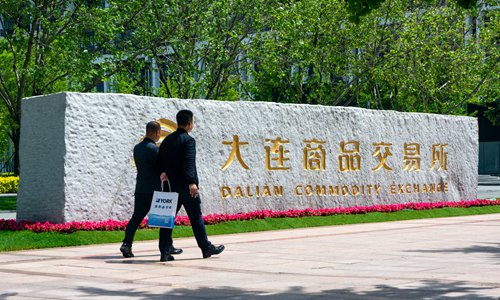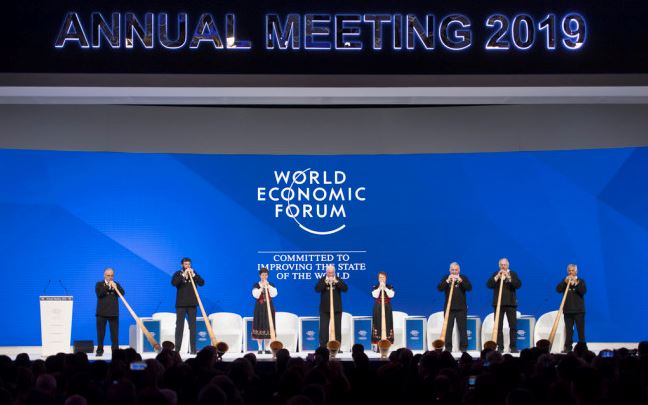
From the People's Daily app.
And this is Story in the Story.
More and more global companies are starting to look at China as a lucrative place to invest as the country’s capital market opens up even further.
China announced in April last year measures to raise foreign equity caps in the banking, securities and insurance industries, allowing foreign financial institutions to take control of domestic securities brokerages up to the 51-percent ownership level.
Foreign equity restrictions on banks and financial asset management enterprises were removed by the end of 2018, with equal treatment for domestic and foreign-funded institutions. Foreign banks were also allowed to set up branches and subsidiaries at the same time in the country.
Cao Yuanzheng, chief economist at Bank of China International, said that foreign financial institutions are increasingly attracted by China's huge financial markets, as more international investors look for opportunities in China's capital market following a decline in US dollar-denominated assets amid weaker confidence in the US economy.
"Entering the Chinese capital market could be a huge lift to foreign financial institutions' global business," Cao said.
Today's story in the story looks at what makes China such an attractive place for foreign banks and financial institutions to invest in.

Investors walk pass Dalian Commodity Exchange in Dalian, Northeast China's Liaoning Province. (File photo: VCG)
HSBC, one of the world's largest banking and financial services institutions, said it will be the first foreign bank to offer futures margin depository services to overseas investors trading iron ore contracts in China.
The bank received a futures margin depository bank (FMDB) license from the Dalian Commodity Exchange (DCE) which is the only exchange offering iron ore futures trading in China, according to a statement by HSBC.
With the license, HSBC can help overseas traders and brokers establish settlement accounts dedicated to futures trading.
The opening-up of futures markets marks the latest step Chinese policymakers have taken to open up the country's financial market.
"From the banking, insurance and securities sector to futures over last year, China has dramatically expanded its financial opening-up," said Dong Dengxin, director of the Financial Securities Institute at Wuhan University of Science and Technology.
US-based rating agency S&P Global has been allowed to conduct local credit rating business via its wholly owned unit in the domestic market, a milestone in China's financial market opening-up.
In December, Switzerland-based bank UBS increased its shareholding in its securities joint venture (JV) in China - UBS Securities Co - from the previous 24.99 percent to 51 percent, becoming the first foreign securities firm to take majority stake in a JV in China.
Li Daxiao, chief economist at Shenzhen-based Yingda Securities, said that the entry of international financial firms could also build a bridge between the Chinese market and overseas investors and overseas issuers, thus further boosting the yuan's internationalization in the global financial market.

Alphorn players perform on stage before the opening session in the Congress Hall during the annual meeting of the World Economic Forum in Davos, Switzerland, Tuesday, Jan. 22, 2019. (Photo: IC)
Since China is set to release a new foreign investment law soon, these foreign financial companies will have access to more domestic businesses in the future, analysts said.
And China's economic fluctuations will not erode its attractiveness for the international financial firms. Rather, it will only bolster their presence, they said.
However, Dong noted that the entry of these foreign companies will also pose threats to their domestic counterparts, with their rich experience in international businesses, good credibility, and expertise in the industry.
"These companies are focusing on the one specific sector, such as asset management, instead of doing everything as a whole," Dong said.
This will also in turn improve the performance of Chinese financial companies, who have strong learning abilities, and thus promote the overall expertise of Chinese financial companies.
"China's vision for the economy is to make it open, large and competitive. It will be a huge opportunity for all companies," said Fang Xinghai, vice chairman of the China Securities Regulatory Commission at the World Economic Forum in January.
Saying that opening up is good for China, Fang emphasized that over the last 40 years China has never had a significant financial crisis.
"How has it managed that? We have a very top-down approach to financial risk management. If risks are accumulating the government will step in. There is a lesson that the rest of the world should look at," he said.
Jin Keyu, professor of economics of the London School of Economics and Political Science, said only two years ago China was considered as a ticking financial bomb, and the slowdown is the consequence of the government's successful efforts to deleverage.
"These efforts have made China safer, much of this is the deliberate effort of the government," she said.
Jin said that China's main challenge is "how to unleash the real potential of the real economy."
(Produced by Nancy Yan Xu, Brian Lowe, Lance Crayon and Da Hang. Music by: bensound.com. Text from Global Times and China Plus.)


